

How a generation of consumers respond to existing products and services will affect the national economy greatly, causing a future sway in trends and the way businesses operate. It’s interesting to see how millennials are changing their buying habits and to uncover what is driving their behavior.
When examined collectively, these seemingly minor adjustments in their day-to-day actions equate to major social shifts. From changes in grocery choices and work tool preferences to an attitude of experiencing life rather than just going shopping, Millennials are creating more change than they realize. The generational differences can be amusing, strange, and fascinating. With that said, let’s dive in and uncover them all.Buying Automobiles
There has been a considerable decline in car purchases recorded over the past decade, particularly among eighteen to twenty-five-year-olds. That’s 25% less profit for automakers who must be desperate to understand the generational shift in attitude toward transportation.


Millennials are more inclined to take public transportation to save up on their finances. This also means less trouble finding parking spaces that are becoming increasingly scant each year in crowded urban settings. Ride-hailing applications make it convenient for them too.
No Need for Fabric Conditioners
Fabric conditioners give a fresh scent to our clothes while making them softer and giving a clean feel. However, millennials have been doing without this small luxury, and it’s about more than just seeing it as an unnecessary extravagance.
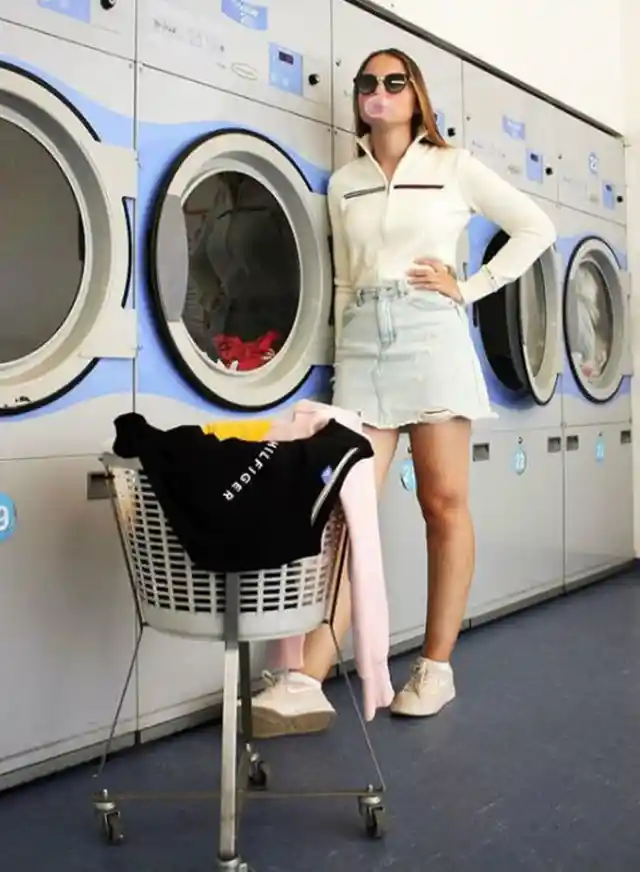

It may seem hard to believe, but a 15% drop in fabric conditioner sales from 2007 to 2015 was blamed on the fact that the majority of millennials just aren’t aware of fabric softeners. Pair that with washing machine technology upgrades and their thrifty lifestyles, and you’ve got a recipe for a generation that doesn’t care for fabric softeners.
Conventional Gyms and Workouts
Millennials aren’t as sports-minded as their predecessors, and there has been a striking dip in the number of people who work out in old-fashioned gyms. Though treadmills, ellipticals, and rows of weights don’t seem to appeal to the younger generations, that doesn’t mean they’re avoiding physical exercise altogether.


This age group has simply shifted the action to more specialized gyms. The drop in traditional gym attendance means a higher number of enrollees in boxing, MMA, and CrossFit gyms. These places also happen to provide far cooler backdrops for selfies.
Cereal Killer
The future of cereal isn’t promising. A recent study found that almost half of the millennials surveyed prefer not to have cereal for breakfast. This shift in breakfast preferences isn’t for health reasons either. No, the reason is far more unusual.


Cereal is easy to prepare, so who would have thought that millennials would consider it to be an inconvenient food? Apparently, what turns them off is the clean-up involved. While it’s not hard to rinse a bowl, dealing with the soggy remnants of cereal is unpleasant.
Corporate Attire
Even long-standing rules on proper office attire are being flexed by millennials and the Gen Y cohort who want corporate fashion that matches their on-the-go lifestyles. Formal corporate attire is giving way to a more casual look that includes jeans and sneakers.


This way, millennials can move from work to a dinner date or even the gym with ease. This trendy approach is not only comfortable to wear but also convenient, and it saves them time changing from one outfit to the next.
Reluctant to Be Homeowners
The millennial generation bore the brunt of The Great Depression, the effects of which were felt worldwide. This resulted in lost jobs and unstable careers, shaping the way the age group continues to make decisions to this day.


It’s been difficult for millennials to afford a home of their own. Having adjusted to a more adaptable lifestyle in which new opportunities may lead them to shift across the country or even across the globe, buying a house doesn’t seem like an ideal step for this generation.
Ditching Dairy
Whole milk products are increasingly getting left out, with more consumers choosing other alternatives, like almond, or oat milk. Spearheaded by the millennial subculture of wanting to change the world and question old methods, it doesn’t look like milk sales are going to rebound any time soon.


Canceling regular milk is a result of their concern for the planet, and the millennials do have a point. Greenhouse gas emissions and animal cruelty are problems the dairy industry needs to face. However, they may never win back the many millennials who have switched to a vegan lifestyle.
Ditching Diamonds and Expensive Weddings
Fewer people are getting married in an age bracket that used to be perceived as ideal. The majority of millennials don’t feel they are stable enough to commit to a lifetime relationship, and social pressure is no longer as heavy as it was in the 80s.


Thanks to limited economic opportunities and more uncertainty due to the pandemic, marriage rates are plummeting. This has led to a drop in the purchase rate of diamonds generally and diamond wedding rings specifically. Even those who do get engaged now opt for precious stones, like rubies and sapphires, instead.
Say Goodbye to Cinemas
Movie theaters are slowly becoming a thing of the past. It’s not that millennials don’t appreciate the experience older generations loved. The problem is that ticket prices have become a tad too high for their taste.


They prefer to stream films at home and invest the money they saved on theater tickets into snacks. There’s no limit to how many films they want to watch, they just prefer to do it at home in their pajamas.
No More Massive Grocery Hauls
Long grocery lists typical among Gen X-ers and Baby Boomers are getting chucked by the younger generation. Instead of spending more time meandering through grocery aisles, they keep their list to the bare minimum. After all, they prefer to spend more money dining out.


Millennials are attached to their mobile devices and like to shop online. Eating out saves them the time spent on food preparation and washing dishes after, both of which seem to be a major chore to them. In short, millennials are happy to pay for convenience.
Popular Beer Brands
Even small get-togethers among old friends used to require a quick stop at a nearby convenience store for a couple of six-packs to be shared around the barbecue. Heineken and Budweiser bottles popped and frothed to the sound of rock music or sports broadcasting, but this is not so among millennials.


The younger age group now prefers craft beer as this category offers endless variety at a cheaper price. Many millennials like to stick to healthier options and flavored drinks.
Luxury Liners
Millennials are not that interested in cruise ships. Although the age group is known to prioritize their work-life balance, they also happen to be quite sensitive to spending more than is absolutely necessary.


They like to go on adventures that keep them more in touch with reality, favoring an authentic experience over luxury. Cruise companies will have to change their approach to lure millennials on board.
Bye Bye Beef
Beef used to be incredibly popular, but as millennials get older, its consumption is dropping steadily. Millennials are health-conscious, and beef is loaded with cholesterol, which is why many have cut it from their diet.


They are also avoiding its consumption for the same environmental reasons that keep them away from dairy. Cattle farming contributes to the release of nitrous oxide and methane into the atmosphere, both of which contribute to global warming.
Serviettes and Table Napkins
First of all, dining with a millennial at their home is becoming more uncommon these days since they prefer to meet and eat out. There, they can readily get to the point instead of having to spend time in the kitchen cooking and cleaning up after.


It’s too much work, as their logic points out, and consequently, the need for table napkins has diminished. This drop in demand also reflects the environmentally conscious attitude of millennials who prefer reusable, eco-friendly products.
No More Mayo
The popularity of mayonnaise is on a steady decline, and millennials are the prime cause as they tend to seek out healthier food options. This also means that our grandparents’ nostalgic recipes will soon be out of the picture.


Many millennials also have a preference for vegan options and organic alternatives, such as avocados. The mayo industry has been slashing its prices to keep its products relevant to the younger generation, but newer condiments are outcompeting this old-fashioned staple.
Pressing Clothes
Millennials don’t fuss over a minor matter such as a wrinkle on a shirt. While their parents were obsessive about ironing clothes, making sure the edges were crisp enough to have a spick and span impression, the younger age group doesn’t bother.


This is because soft clothing has become the trend nowadays, with many brands getting on board with the “no ironing needed” craze. The industry has understood that millennials are always on the go, so the need for convenience is high. They have changed the way they manufacture garments to suit.
Home Telephones
A millennial might crack a joke about a home landline when one is present as it is an item that had long since exhausted its purpose. Indeed, to millennials, it is merely an extra expense they can do without. In a world that’s gone wireless, a landline is a strange concept. When your smartphone is never more than a meter away, why would you need another phone line?


There are now so many ways a person might be reached other than through phones. Newer platforms, tablets, software applications, and other forms of technology are killing the need for wired devices. Indeed, millennials are spoiled for choice when it comes to staying connected.
Trying Your Luck With Lottery Tickets
Suffering from two major economic recessions in one’s lifetime could drive some people to desperation. Fleeing from the repercussions of these, many baby boomers who were in the red with bank loans and bills tried their luck with the lottery. Despite the overwhelming odds of not getting a win, it seemed like a reasonable thing to do.


Surprisingly, most millennials aren’t like that. They’re focused on life experiences, appreciating the journey instead of the prize. Millennials crave financial stability, so they try to avoid reckless spending, but they’re hooked on technology, so when they want a quick win, it’s their devices that give them instant gratification.
A Farewell to Postcards
Postcards are slices of a loved one’s life on the go, featuring colorful illustrations and photographs of wonderful places that launch the recipient’s desire to pursue and embrace their own exciting life experience.


Few postcards are sent these days, even from the world’s most popular tourist destinations. Millennials prefer emails, instant messaging apps, and social media, all of which make it possible to do what postcards once did. However, these platforms can do it instantly and for free.
High Heels
Stilettos used to be insanely popular in high society. They’re expensive and impractical, but these factors, oddly enough, used to be part of their charm. Times have changed, and high heels have been shaken from their hollowed place in the fashion world by the millennial generation’s new attitude toward daily living.
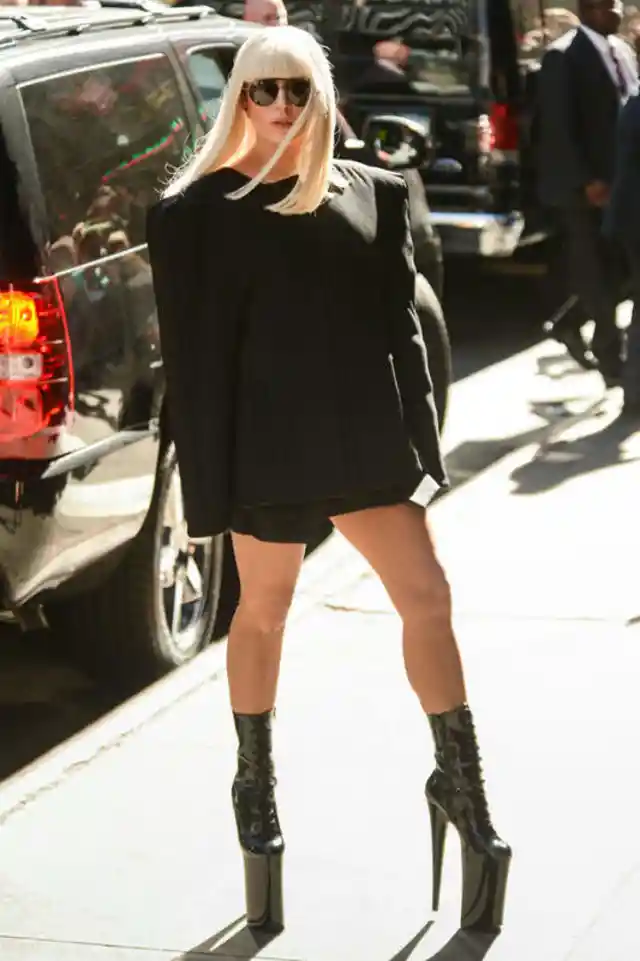
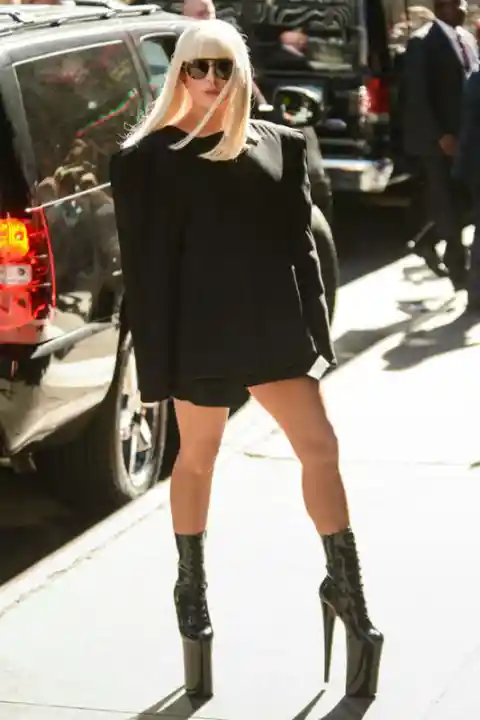
The younger generation prefers practicality and ease of movement. They are, after all, responsible for the arrival of sneakers and jeans in workplaces. Sneakers are comfortable and practical, and younger generations love these factors.
Stock Trading
It’s hard to blame the majority of millennials for not wanting to trade stocks, especially after having witnessed supposedly financially stable companies crumble in the wake of economic uncertainty.


They prefer to focus on the now, living in the moment, and dealing with the uncertainty of their shaky careers. They aren’t all that interested in insurance policies either, seeing them as overpriced and deceptive. Financial issues aside, gaining the trust of millennials is a major hurdle.
The End of the Buzzer Era
The electrical sound of a buzzer can quickly get on your nerves. It is a jab into the subconscious of a person who is asleep. Chimes and doorbells make millennials anxious, with the sound feeling as intrusive as if someone physically stormed into the room. They also think the technology is unnecessary and obsolete.


Instead of jumping out of their seats when the doorbell rings at midnight, millennials prefer it if the visitor sends a short message to say that they are on the way or standing outside the door.
The End of Cable Television
Thirty percent of millennials have stopped subscribing to cable TV, and this is part of a steady downward trend. Most of them are just too preoccupied with their careers, worried about paying off student debt, and keen on experiencing life to be at home watching TV. Cable subscriptions also seem far too expensive to be worth it.


TV is no longer a priority thanks to cheaper streaming services that you can access anywhere and from multiple devices. With a Netflix subscription, for example, you can share the cost with friends and watch at home, on public transport, or wherever else the mood strikes. Cable, by contrast, seems incredibly restrictive.
The Decline of the McDonald’s Empire
McDonald’s is no longer the favorite place of today's young adults. While the Hamburglar and Mayor McCheese used to lure people in, many millennials aren’t interested in the food, the costumed characters, or anything else the fast-food chain has to offer.


To them, fast food isn’t healthy, nor does it give them an authentic feel. They also care about the contributions a corporation makes to the community, and Mickey D’s isn’t living up to their expectations. More and more, millennials are opting for food that’s natural as well as sustainable.
Luxurious Accommodation
Millennials love to travel, but they do so in their own way. They don’t like to stand out as tourists, preferring to deeply immerse themselves in the flow of life in each country they visit. This is why many more millennials are enjoying slow travel, staying in places longer, and often finding work in the countries they visit.


Most millennials are saying goodbye to luxurious hotels, which they feel are disconnected from reality. They opt instead for hostels and longer-term rentals that allow them to live just like a local.
Eighteen Holes
Golf has been popular since the 1920s, but for the first time since it came on the scene, the sport is experiencing a slowdown in its appeal. Many millennials just don’t see the point of this long, slow game.


Instead of spending the whole day walking on the green and continually swinging, millennials prefer action-packed adventures, specialized gyms, traveling to exotic destinations, and experiencing what the world has to offer them.
Traditional Soap Bars
There’s been a steady decline in traditional soap bar sales, but it doesn’t translate to a more unclean community. Nowadays, most of those who buy soap bars are sixty-year-old men, with younger consumers believing soap is no good for their skin.


Millennials prefer to buy body wash, and this has resulted in a steady fall in bar soap sales each year throughout the 2000s. They also go for products that have lighter textures and hydrate their skin.
Dining at Casual Restaurants
Making an order has never been so easy, and millennials love to take advantage of new apps that allow them to make food materialize at their doorstep with no effort exerted on their part. They like whatever is convenient, and it doesn’t get much more convenient than doorstep delivery.


They also favor quick-serve restaurants when they decide to eat out and will only go for wine when dining out in cozy places. This generational habit has left many casual dining restaurants dealing with a slump in sales.
The Death of Department Stores
Kids used to love it when their parents took them to department stores back in the day. Subdivided into several sections, family members could roam individually to their own areas of interest, from the toy section to sporting goods, appliances, kitchenware, and furniture.


Traditional family shopping trips are now taking a back seat with the millennial generation. These digital natives prefer to shop online where items are cheaper, stores are open 24-hours a day, and there are no pushy salespeople to bother you.
Scratch Cards Are Losing Popularity
Older generations liked to place bets and try their luck on scratch cards. They knew the chances of winning were extremely low – one shot in almost fifteen million – but a lot of people used to do it anyway for a little fun and excitement.
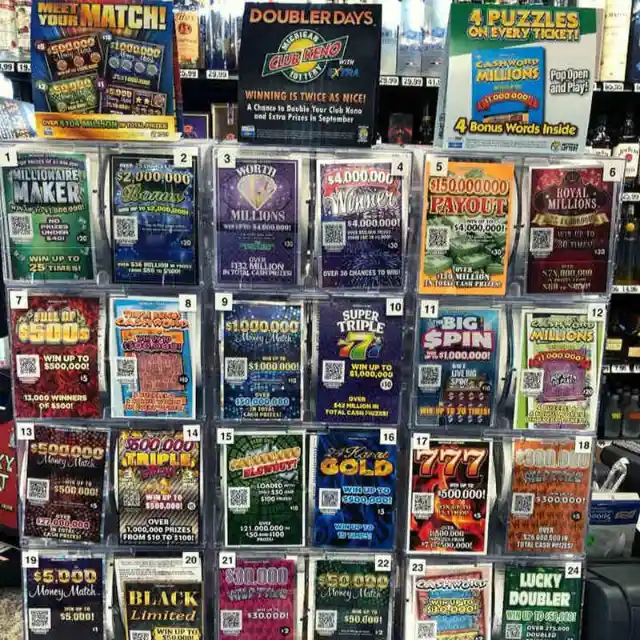
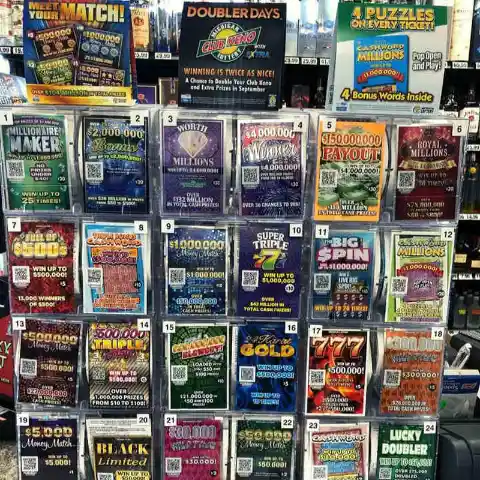
Millennials don’t wager as much as boomers once did. They are not keen on gambling their money away since it feels like it is getting harder every year to earn. With expenses always rising, millennials just don’t enjoy the risk.
Fast Food Joints and Restaurants
The millennial cohort aims for convenience in almost all aspects of daily life. They want to focus their time and energy on what they feel truly matters. This has led them to move beyond old traditions and break established patterns in their bid to learn and experience new things.


Eating fast food is one thing they are skipping for health reasons, despite its convenience. After all, how could one experience life to the fullest if one is unhealthy? Plus, the price of healthcare keeps growing out of their reach. Diet is one thing they can control.
Fancy Clothing Brands
Millennials tend to veer away from any brand that doesn’t align with their beliefs and values. They have an aversion for things that don’t have a positive impact on society, and they tend to avoid products they view as overpriced, such as popular clothing name brands.


Mirroring their approach to life itself, millennials focus on clothing that has practicality, style, and substance. They like thrift shopping, and if they buy something new, they tend to prefer brands that have a sustainable approach. Swapping with friends is another popular way for millennials to get “new” clothes.
Not Crazy About Corks
Millennials like to go out and dine in nice restaurants occasionally, and when they do, they’ll enjoy a bottle of wine without thinking about its stopper. However, if they have wine at home, they tend to pick bottles with screw caps rather than corks.


Corks can taint the wine, and rumors that cork trees are being chopped down to produce wine stoppers made things worse, creating a negative reaction among millennials.
Expensive Motorcycle Ownership
The motorcycle manufacturing industry has been in decline over the last few years as millennials have failed to develop an interest in this mode of transportation. This is especially true when it comes to heavier bikes, like Harley Davidson’s, which millennials and Generation Y kids see as being too complicated and expensive.


Unlike older generations, younger consumers don’t look to motorcycles for adventure. They see them as little more than a means to get to the next destination. With this change of perspective, many see motorbikes as being dangerous and uncomfortable compared to the ease of public transportation.